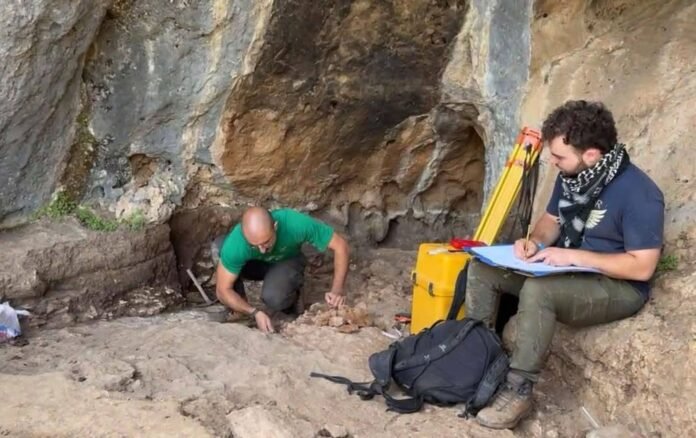Archaeologists have made an extraordinary discovery northeast of Erbil — remains of the Halaf civilization in Soran.
This ancient culture dates back 7,000 years, offering a window into early advanced human settlement.
According to Abdulwahab Sulaiman, head of the Soran Archaeology Department, the team uncovered architectural structures from the Halaf period.
“We found well-designed building foundations and beautifully preserved pottery,” he said.
Sulaiman also highlighted the discovery of bear bones, which symbolized power and strength in that era.
“These finds enhance our understanding of cultural symbolism,” he noted.
The excavation site spans 500 square meters in a densely populated area of Soran.
Research has been ongoing for seven seasons, involving experts from Salahaddin University and the Autonomous University of Barcelona.
Spanish archaeologist Maryam Gomez shared insights from her third campaign at the site.
She discovered wood remnants from mountains and riversides, showing Neolithic resource use in activity zones.
In addition, Gomez uncovered burned plant remains and seeds, confirming early agriculture and fruit collection practices.
“All findings have been carefully documented,” she added.
All artifacts belong to the Kurdistan Regional Government, which supports preservation and academic collaboration.
Planners aim to establish a museum to display the Halaf civilization in Soran.
Soran District Commissioner Rajab Zubair confirmed the museum plan, calling it essential for education and tourism.
He believes the facility will attract global visitors and promote archaeological tourism.
Excavators also discovered human footprints from the Stone Age, further enriching the site’s significance.
Sulaiman reported that Soran has around 1,200 registered archaeological sites.
The Halaf civilization in Soran joins a long list of discoveries across Kurdistan.
The region also contains ruins from Sumerian, Assyrian, and Neanderthal periods, forming a living museum of human history.

